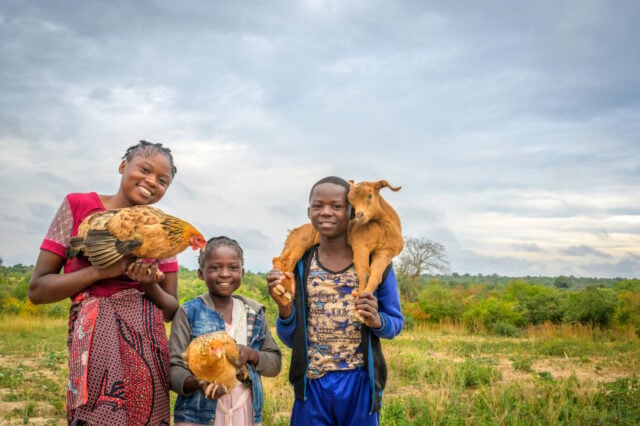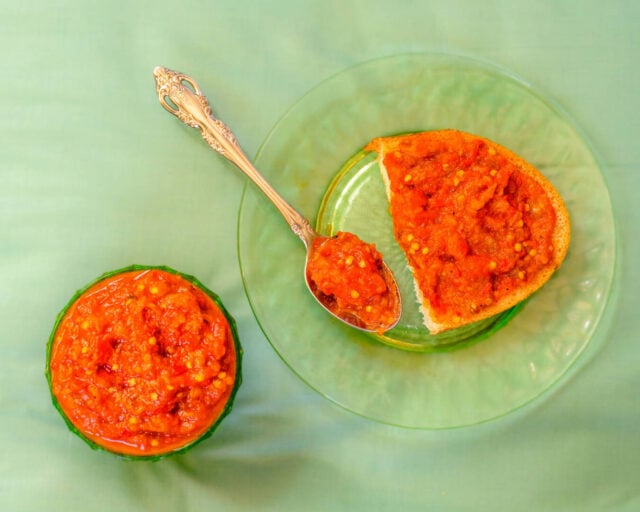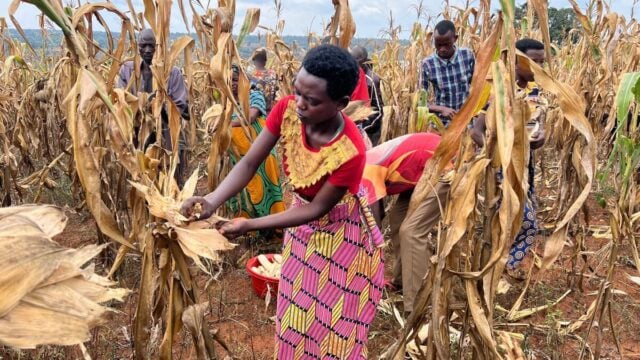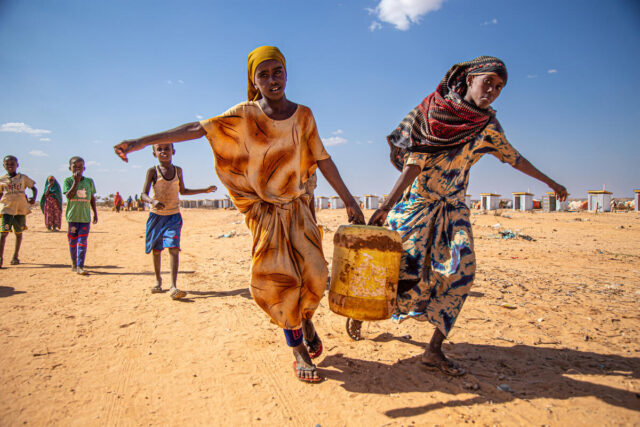Before Yessica could even walk, her mother left her and her brother to live with their grandmother, Maria. She went looking for work but never returned. Yessica’s father lived nearby but didn’t help raise the two children. To care for them, Maria cooked and collected firewood.
“That’s the work we’ve had, nothing else,” Maria says.
As a child in Honduras, Yessica was different from the village kids, says her grandmother — not learning bad words, stealing, or getting into trouble. Instead, she was quiet and humble, even while being ridiculed by other children for the darker color of her skin. That painful experience made looking at herself in the mirror difficult.
“I always thought, ‘Oh no, I’m ugly! I’m black! I have ugly hair!’ because that’s what they put in my head,” Yessica shares. “I didn’t see myself anymore,” she continues. “When I saw myself in the mirror, it was like I was looking at a question: ‘Who am I?’”
She wouldn’t know the answer for many years.
A life without luster
Yessica had to overcome significant barriers to continue her education. “One of the most difficult situations for me was to be able to study, to be able to buy my notebooks, and to be able to travel to school,” she says.
Maria wanted to make sure her grandchildren went to school. “That is the best life for the little ones, for them to go to study,” she says. But her economic situation was less than desirable.
So as a 10-year-old, Yessica began sand mining with her dad and her half-brothers on the weekends.
“That’s how I earned my extra money … that’s how I helped myself,” she says.
When she was 15, and the money from sand mining wasn’t enough, she began spending her summers working in other people’s houses: washing floors, taking care of children, cleaning, and doing laundry.
Light breaks through
In 2017 when Yessica was 17 years old, things began to change when World Vision began working in her community.
“They were organizing a group of young people, and I remember I was invited,” she says.
World Vision staff invited the youth into a Bible study, and then taught them about agriculture. Yessica became deeply committed to the program and joined a field school, where community members are trained in new agricultural techniques and best practices by World Vision technicians.
She was in her second year of high school. With the new knowledge she learned at the field school, Yessica dedicated herself to growing coffee and farming the plots that World Vision was forming within the community.
“One of the nicest parts for me when I’m on the plot is to watch the sunsets, to see how water falls on the plants, to see them grow, to see the fruit they bear,” Yessica says. She also loves giving back to others: “The other favorite part for me is helping people with food from the plot, which is something that has been practiced since we started with it.”
She began to see the fruits of her commitment. “It was a change,” she says — a big one — “because I was starting to have more income.”
Today, Yessica earns $4,854 a year, while the average in Honduras is only $2,750. With this income, Yessica has finished building her grandmother’s house and now pays for water, groceries, and her grandmother’s medicine. She even bought a motorcycle.
“I’m very happy,” Maria says, “because she’s prospering and prospering.”
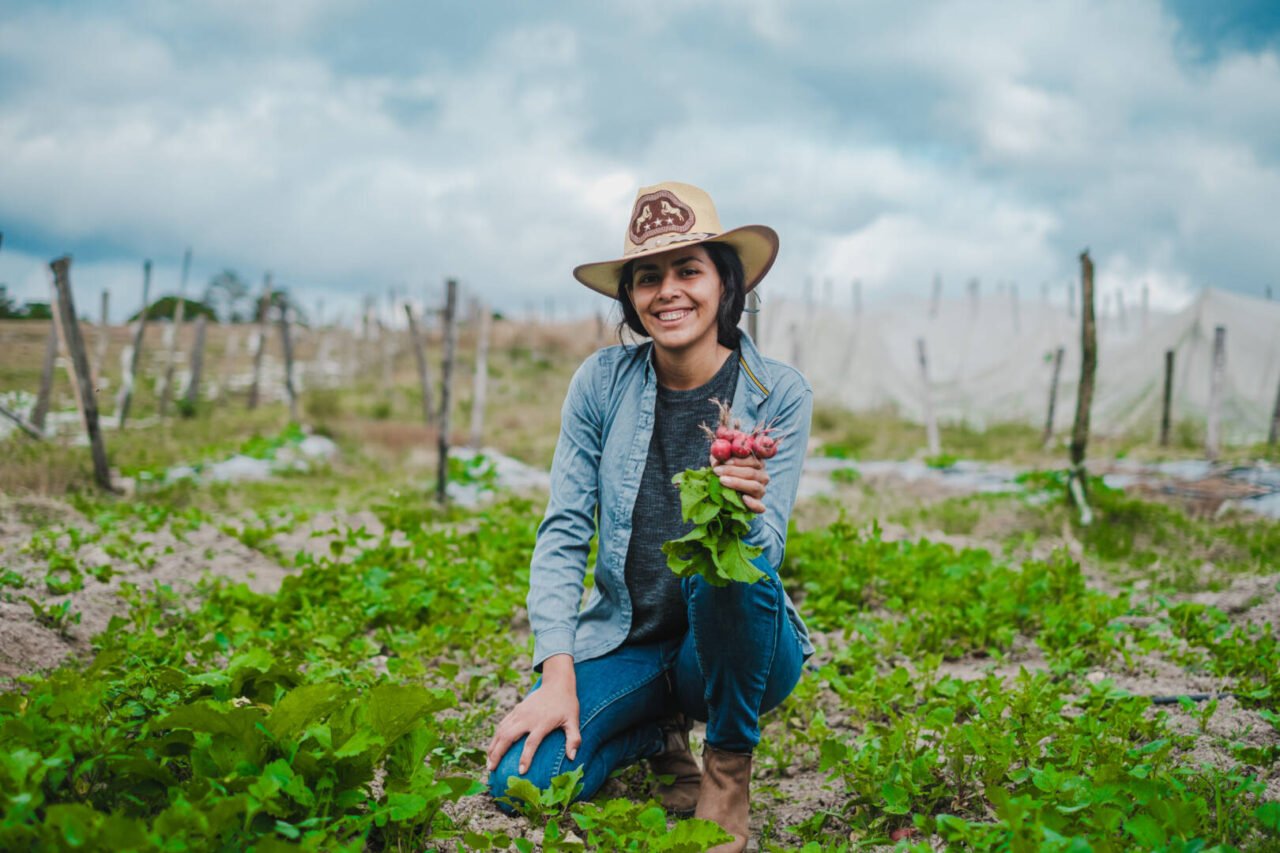
Yessica shines
In 2019, Yessica was invited to take part in Biblical Empowered Worldview training through World Vision. Through the Bible studies and principles offered in that training, Yessica’s self-esteem grew. She began to see her value through God’s eyes rather than the criticisms of others. “When you discover the great truth of Biblical Empowered Worldview, you’re going to feel like a different person,” she says.
Through the trainings, she also discovered she could lead.
“One of the parts that changed me the most was when … they let me be part of the family of volunteers,” she says. After training for a year, Yessica is now a community leader, teaching both women and men — including her uncle — to farm. She even serves on community boards, water boards, and local boards of trustees.
As she’s grown and changed, she’s also come to appreciate how much her grandmother believed in her.
“When I was in school … there wasn’t a parade where she wasn’t out there walking with me and her water bottle,” Yessica says. She says her grandmother may have struggled to provide for her, “but she was there for me.”
She sees that her grandmother left her a legacy of never giving up. She also credits World Vision with encouraging her.
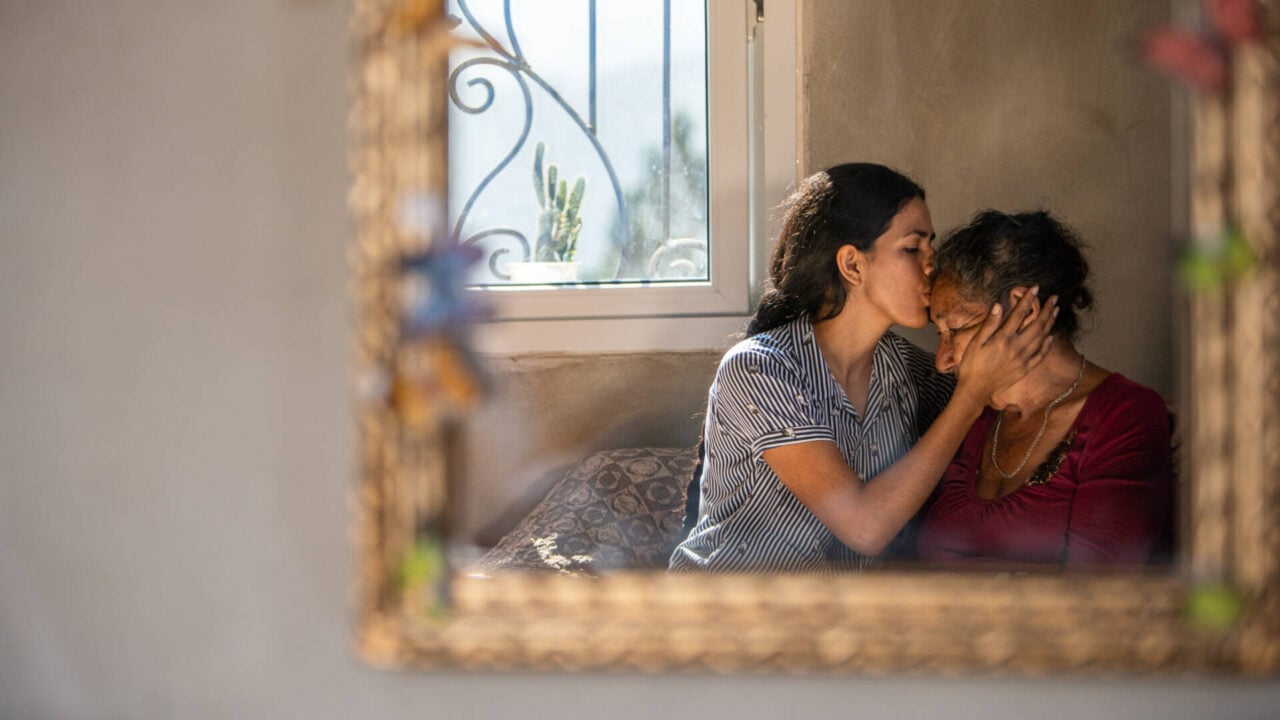
“World Vision came along and believed in me, and it’s something that I can’t forget, and it’s there in my heart,” Yessica says. “World Vision is my second family. It’s my second home. It’s been my school. It’s been my university. And there have been times when I’ve gone to World Vision and said, ‘Do you have this, or can you help me with this?’ And whoever’s there, whichever project is taking place, they have always supported me.”
Yessica believes in her cousin, Marbella, to whom she has been like a mother in the physical absence of Marbella’s own mother. Yessica’s dream for Marbella is “to see her as a professional, but also one of my dreams is that Marbella can be with her mom.”
Today, when Yessica looks in the mirror, she no longer sees a question. She says, “Today I look at myself and think, ‘How beautiful I am!’ And I see myself as a woman with identity, with vision, with her own beliefs.
“I consider myself a unique woman, and every time I look in the mirror, I say to myself, ‘Yessica, tomorrow you’re going to be better than today.’”
Not only is Yessica beautiful — she has built a beautiful life for herself and her family.
